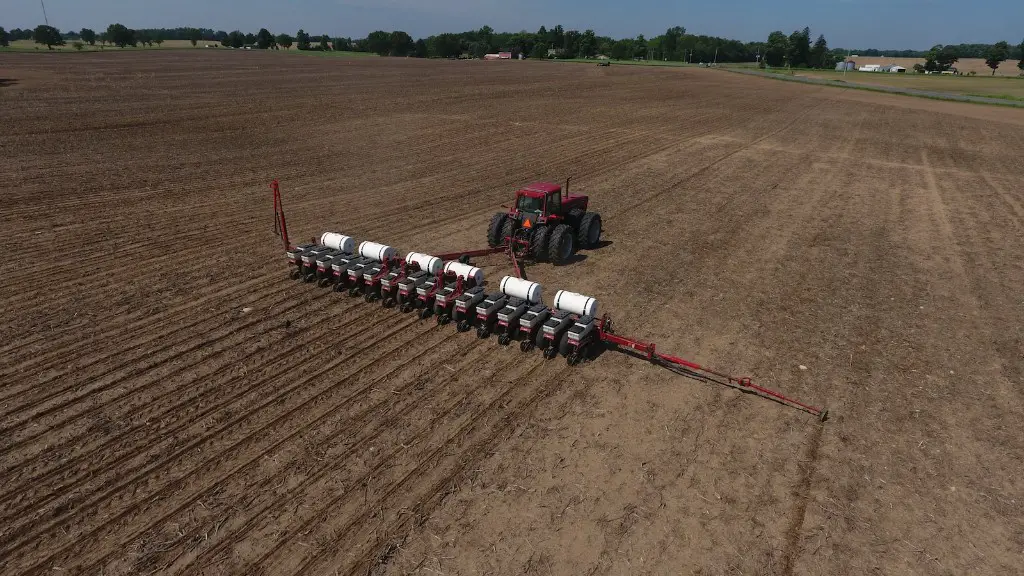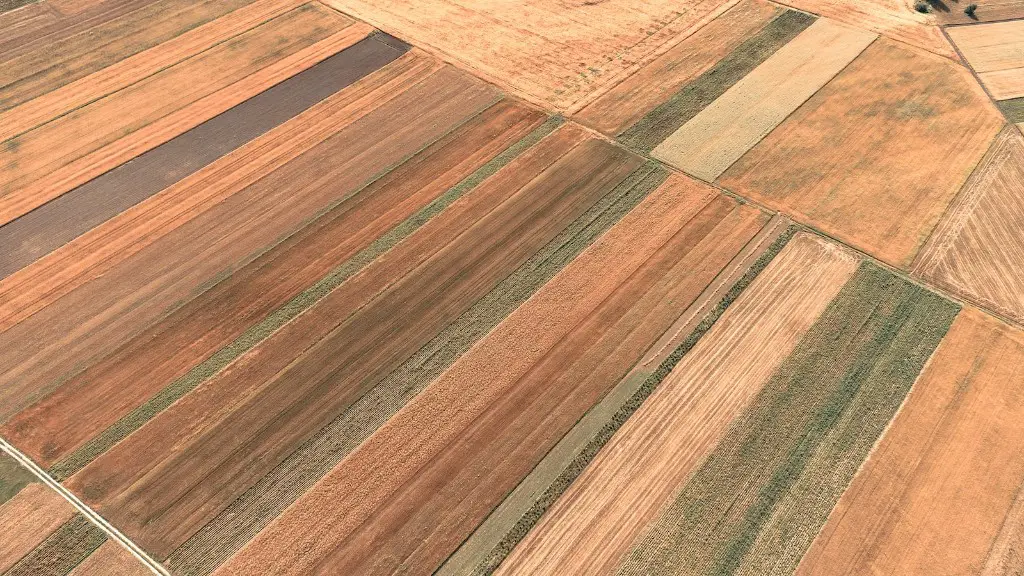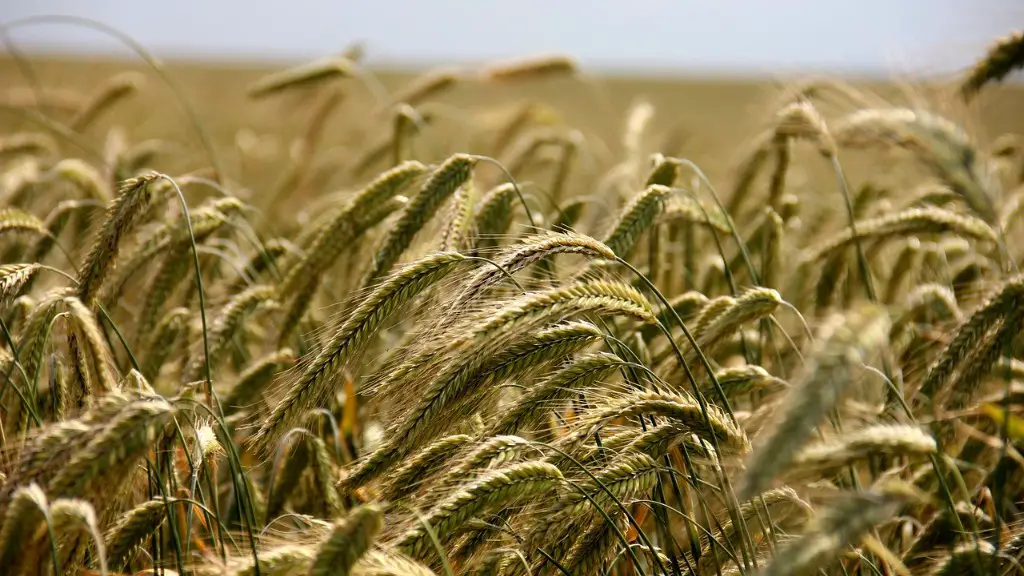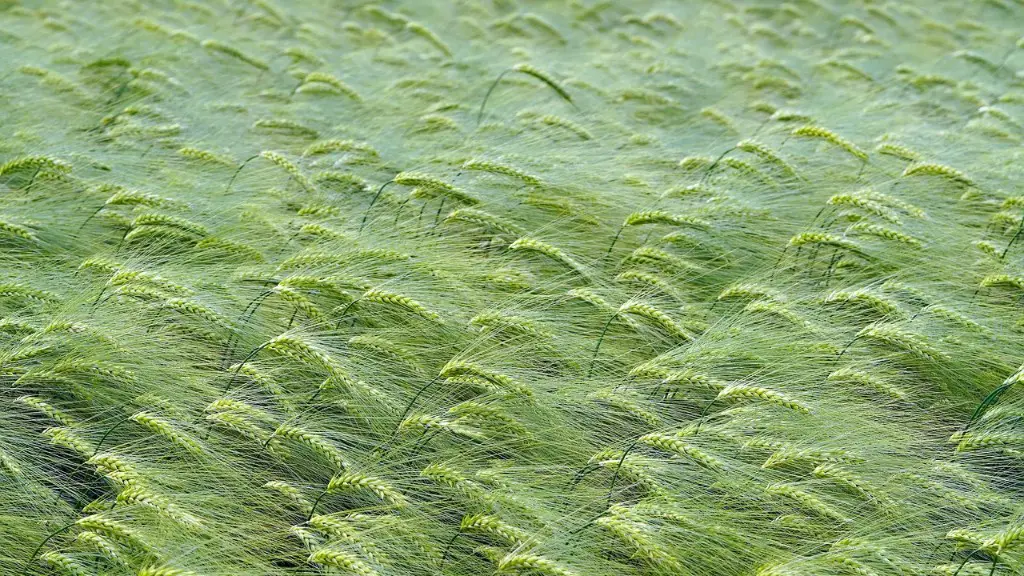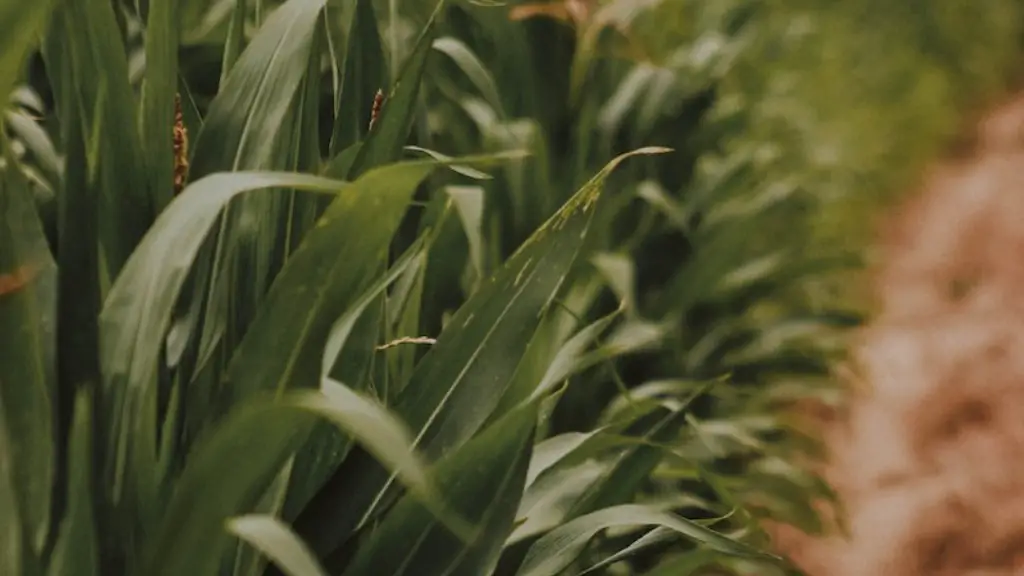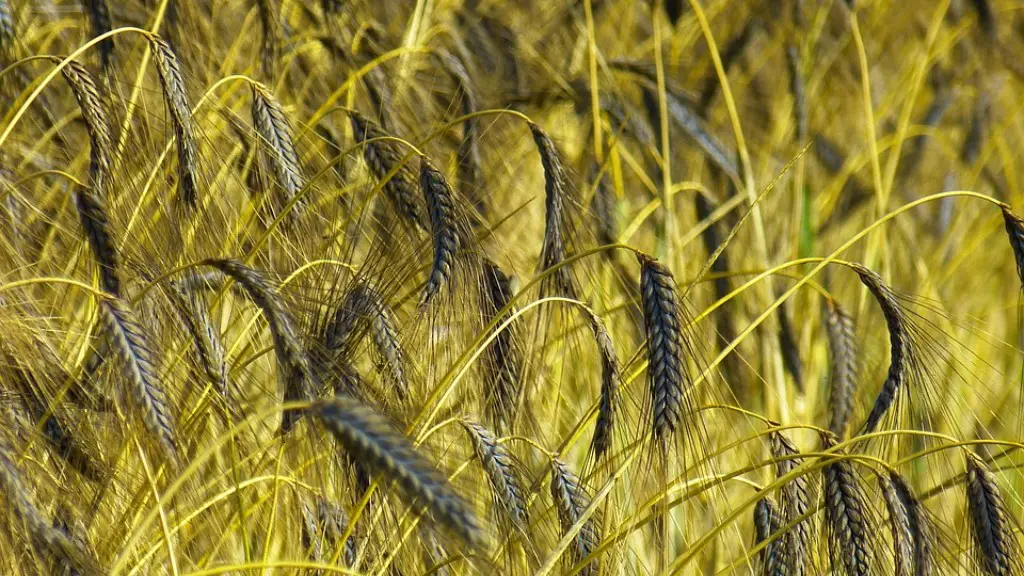climate change is affecting agriculture in a number of ways. One way is through changes in precipitation patterns. With more extreme weather events, such as more frequent and intense storms, droughts and floods, agricultural production can be seriously impacted. In addition, rising temperatures are causing some crop types to become less productive, while other pests and diseases are thriving in new conditions. Changes in local climates can also create new challenges for farmers, as well as disrupt traditional farming practices. With all of these factors at play, it’s clear that climate change is already having a significant impact on agriculture, and that this impact is likely to become more pronounced in the years ahead.
Climate change is affecting agriculture in a number of ways. First, rising temperatures and changes in precipitation patterns are affecting the timing of agricultural seasons and the growth and development of crops. Second, extreme weather events such as droughts, floods and storms are becoming more frequent and more intense, causing damage to crops, soils and infrastructure. Third, changes in the distribution and abundance of pests and diseases are affecting crop yields. Finally, changes in the availability of water for irrigation are affecting crop production.
How agriculture is affected by climate change?
Climate change is expected to increase the frequency of heavy precipitation in the United States, which can harm crops by eroding soil and depleting soil nutrients. Heavy rains can also increase agricultural runoff into oceans, lakes, and streams. This runoff can harm water quality.
Water is a vital resource for agriculture and efficient irrigation management is critical for farmers in order to maintain a healthy and productive farm. There are a number of methods that farmers can use to save water and reduce energy consumption, such as drip irrigation, planting cover crops, dry farming, and more. By using these methods, farmers can help to conserve water and reduce their impact on the environment.
How will climate change affect agriculture quizlet
As the climate changes, we can expect more extreme weather events like floods and droughts. These events will have a direct impact on agriculture, and will reduce food availability. We need to be prepared for this by diversifying our food sources and increasing our food storage.
The agricultural revolution caused significant climate change, to which humans needed to adapt. Agriculture did not develop until the climate changed to become more stable. Agriculture became widespread in response to rapid climate change. As the rate of climate change was reduced and allowed for a more stable climate, agriculture became more widespread.
What is the relationship between climate and agriculture?
Climate change affects agriculture in a number of ways; including through changes in average temperatures; rainfall and climate extremes with an important impact on soil erosion (ie floods, drought, etc): changes in pests and diseases, changes in atmospheric carbon dioxide, changes in the nutritional quality of some
Livestock health may be negatively affected by increased temperatures, resulting in reduced milk, egg, and meat production, as well as increased cooling costs for producers. On the other hand, higher CO2 levels may result in greater productivity from some crops, such as wheat, barley, canola, soybeans, and potatoes.
What challenges are farmers facing as a result of climate change?
Climate change and variability have indeed led to crop failure and livelihood losses as well as increased incidents of food insecurity in the country. However, it is important to note that the reduced contribution of agriculture to GDP is not solely due to climate change and variability. There are other factors at play, such as economic policy decisions and infrastructure development. Nonetheless, climate change and variability are significant contributing factors to the challenges faced by the agricultural sector in the country.
It is not only carbon dioxide that is the problem in terms of greenhouse gas emissions – methane and nitrous oxide are also produced in significant quantities, and are released into the atmosphere through various sources, including animal waste and fertilizer use. Livestock farming is responsible for 37% and 65% of our global methane and nitrous oxide emissions respectively. Therefore, it is clear that we need to take action to reduce these emissions in order to tackle climate change.
How does climate change affect agriculture and water
Climate change can significantly affect water resources through changes in precipitation patterns, runoff, and river flows. These changes can impact water quality and lead to extreme events such as floods and droughts. It is important to be aware of these potential impacts when planning for and managing water resources.
A new study has found that climate change could have a significant impact on global crop yields by 2050. The research, which was published in the journal Nature, looked at the potential effects of climate change on agriculture, considering the response by economic agents. The study found that, on average, biophysical yield effects without carbon fertilization could lead to a 17% reduction in global crop yield by 2050. The study’s authors say that the impacts of climate change on agriculture are likely to vary regionally, and that further research is needed to better understand the potential impacts in different parts of the world.
What are 5 effects of climate change?
As the climate changes, we are seeing more extreme weather events that can directly harm animals, destroy their habitats, and disrupt people’s lives. These events are becoming more frequent and intense, and they are having a huge impact on our planet and its inhabitants. We need to take action to protect ourselves and the animals that we share this planet with. We need to be prepared for the worst and hope for the best. Thank you for your attention to this important issue.
One major component of crop failure predictions is water scarcity. In a warmer world, water is a critical resource. Climate change will shift precipitation patterns, drying out some regions and inundating others. Most of the world’s breadbaskets are headed in the drier direction.
What crops will survive climate change
Climate change is one of the biggest challenges facing the world today. Farmers are on the front line of this battle, as they are the ones who must deal with the changing conditions. They are also the ones who can help to mitigate the effects of climate change, by breeding and cultivating crops that are more resilient to the changing conditions.
Genetic engineering is one of the tools that farmers can use to help their crops adapt to rapidly changing climates. Researchers are developing strains of rice, maize and wheat that are capable of withstanding longer droughts and wetter monsoon seasons. These crops can help to ensure food security in a world that is being increasingly impacted by climate change.
Engineered crops are just one part of the solution to climate change. We need to continue to develop other mitigation and adaptation strategies, in order to protect our planet and our way of life.
As the climate changes, it is becoming more and more difficult to grow staple crops like corn, soybeans and wheat. Extreme heat, changing rainfall patterns and other impacts of climate change are making it harder and harder to produce these crops. If we don’t start adaptation efforts now, our food supplies will be at risk and farmers will lose their livelihoods. We need to act now to protect our food supplies and our farmers.
Will we run out of food because of climate change?
The world’s food supply is facing a major crisis. In the next 30 years, food security will be severely threatened if little or no action is taken to address climate change and the food system’s vulnerability to climate change. The world’s food system is already under immense stress from a growing population, dwindling resources, and a changing climate. If we do not take steps to address these challenges, the food system will collapse, leaving billions of people without access to food.
Climate change is a major threat to the food system. The world’s food production is highly dependent on weather and climate, making it vulnerable to changes in the climate. Climate change is expected to cause more extreme weather events, such as floods, droughts, and heatwaves. These events will have a devastating effect on crops, livestock, and the people who depend on them for food.
The food system is also under stress from a growing population. The world’s population is expected to reach 9 billion by 2050, and the demand for food will only continue to grow. With a finite amount of land and resources, we will not be able to produce enough food to meet this demand.
We need to take action now to address these challenges and protect the food supply. We must transition
Habitat loss is a huge problem that is caused by rising temperatures. This affects vegetation, food sources, access to water and much more. Ecosystems may become uninhabitable for certain animals, forcing wildlife to migrate outside of their usual patterns in search of food and livable conditions, while causing other animals to die off. This is a huge problem that needs to be addressed ASAP.
Final Words
Climate change is affecting agriculture in a number of ways. The most direct effect is from changes in temperature and precipitation. Rising temperatures and changes in precipitation patterns are already stressing crops and livestock and making it difficult for farmers to grow food. As climate change continues, these effects are expected to become more severe.
Other effects of climate change on agriculture include an increase in pests and diseases, changes in the timing of the growing season, and more extreme weather events. All of these factors make it more difficult for farmers to produce food and make a living.
It is evident that climate change is already having an impact on agriculture, and that the sector is under increasing pressure to adapt to a wide range of new risks and vulnerabilities. Agricultural production systems are being impacted by rising temperatures, changes in precipitation patterns, and more extreme weather events. In addition, pests and diseases are moving into new areas as a result of changing climatic conditions. All of these impacts are expected to increase in the future as the world continues to warm.
Agriculture will need to adapt to these changes in order to maintain production levels and ensure food security for the world’s growing population. This will require new and innovative approaches to crop production, water management, and pest control. With the right policies and investments in place, agriculture can continue to play a vital role in feeding the world while also protecting the environment.
